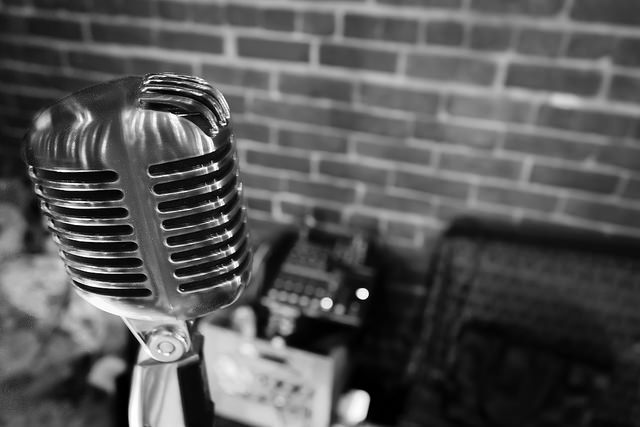
“Serial,” a podcast from the producers of the public radio show “This American Life,” is a runaway hit. That’s awesome. What’s not awesome is the leap of logic people are taking that this means it’s a boom for all kinds of podcasting. It’s not. And here is why I feel that way.
A DVR for Radio: The Hit is Coming From Mainstream Media
Some marketers love to hook on to the value of podcasting, and hope for the listenership. The truth is, podcast popularity is probably higher than critics would like to think, as suggested by this data from Edison Research (the lead: 2% of all audio listening is to podcasting. That is small but yet significant). Why do we need a podcast from the producers of an established public radio entity (“This American Life”) to suddenly declare that podcasting is here? We don’t. The publicity is nice, but it doesn’t have much to do with podcasts for marketing. It has to do with time-shifting commercial (ok, non-commercial, but mainstream in this case) programs, much as we use DVRs for television programs. While Serial is a “podcast-only” program, my focus group of one (me) frequently prefers to listen to several public radio shows available on-air as podcasts/radio DVR rather than being a slave to air times.
Do People Differentiate Podcasts From Other Programs?
Do people really think of listening to podcasts as a separate activity? Separating this from the mainstream media podcasts, it means more, perhaps, when thinking about listening to an industry or corporate podcast. It’s a good question that, as I tackled this post, I’m not sure I have the answer to. When podcasting was introduced, people didn’t necessarily know what that meant. Nor did they necessarily associate “pod”casts with the i”Pod” especially as Apple tended to treat podcasts as a second-class (e.g non-revenue stream) citizen, at least early on. In the end, podcasts are audio. In my earbuds, they compete with music for my aural attention (and some of you listen to audio books; how different are they from podcasts?), and to me it’s that simple.
ETA: Barbara Kolbe Baker, on Facebook, articulated a point I failed to make in the original draft of this post: It’s “about the content, not delivery method.”
Podcasting is Hard (Kind of)
It’s easier to write than it is to produce a listenable 20 to 30-minute podcast. It’s not really that hard to record, edit and publish, but there is at least a small amount of know-how involved in making a listenable podcast (form both content and technical points of view) over simply doing written material.
The same could be said for video, but the allure of the moving image helps people get over that barrier (or sloppily crash through it, webcam in hand) more readily. Will podcasting as a business tool really take off as a primary medium? Only if people are willing to do the work; those who are will lead that category, whatever size it becomes.
Business Podcasting Never Lost Effectiveness
People just got lazy. Business podcasts are great, and there are no shortage of pretty good marketing and technology podcasts out there that I enjoy listening to weekly. These include the For Immediate Release family of podcasts, the TWiT family of shows and, in an example of one podcast-only show that truly is successful on a few levels, Marc Maron’s WTF podcast.
As an early podcaster, I get the temptation to cheerlead for the medium at every potential positive sign. But rather than build theme parks around hallucinations, it’s better to just go to work and build something you believe in, that serves your audience well; that’s what will ultimately be successful.
Final Word (and Pictures)
Variety has its own take on why “Serial” isn’t really as big a deal as some people are making it out to be. It’s a good read.
And for business podcasting nerds like me, here’s some cheerleading from Jay Baer that’s more grounded in fact, and the reasons why podcasting does work and why it is successful. Note that he doesn’t mention “Serial” anywhere in this lengthy assault of images (I really do have a problem saying unvarnished nice things about infographics, don’t I? Deal with it).


I’ve seen numbers that suggest that smarter cars that can play podcasts may be contributing to more podcast listening. And my podcast, which has not been updated in many years, has more listeners, and more people are ending up at the orphan pages those episodes mentioned. And when I updated those pages and products, sales went up.
That, however, does not mean that a SINGLE podcast means an industry boom. That’s not just jumping to a conclusion, that’s flinging oneself off a really tall conclusion skycraper.
A couple observations, Doug.
First, while Serial is coming from mainstream media, it is not being broadcast on the radio. It’s a podcast from a mainstream media company, just like Lexicon Valley (Slate) and Freakonmics Radio (WNYC). Consequently, the DVR metaphor isn’t quite right. And if people will download these podcasts, why not others? In fact, couldn’t Serial be a gateway to other podcasts?
For example, the Atlantic was inspired to publish a story titled, “Podcasts so good you want to binge-listen.” Most of these were produced by a larger entity, such as This American Life, RadioLab, and Love+Radio. How many Atlantic readers were introduced to podcasts by this piece, listened, and got hooked?
Another consequence of Serial’s popularity is that advertisers are now looking at podcasts as a legitimate vehicle for their ads, which means they’ll also be directing people to shows where their spots can be heard.
I agree with you (of course) that business podcasting never lost its effectiveness, but in the early,enthusiastic days, a lot of businesses lost their interest in podcasting. (Remember Westinghouse’s American Family series? It was great, and highly praised, but too early; it never found an audience.) The publicity Serial is getting, and the bump podcasting is getting as a result, could bring businesses back to podcasting.
Research (from either Edison or some other source, I can’t remember) suggests awareness of podcasts (by label) is pretty high and growing, so I do think people differentiate, and will continue to do so even more.
So, yeah, I think Serial will ultimately have a beneficial impact on the whole category. FWIW.
Podcasting has grown every single year since 2004. I think serial is getting people who have never listened to a podcast to listen to a podcast. In the future the whole “subscribe” feature may be a moot point as we all just go to websites and click play. That would be a shame. One edison research stated 13 million people a day listen to podcasts. Podcasting on the android side is dismall (but then there is huge opportunity for growth). I know when I get in my car (Prius) my phone just connects via bluetooth and I’m good to go.
[…] than many think, won’t find new legs just because ‘Serial’ has been successful according to blogger Doug Haslam. The show is not a game changer just a shape-shifter—professional production values fused to a […]
Doug,
Great post. I’m sorry I’m only now getting to it. Interesting perspective and, while I agree with Shel’s comment quite a bit, I do agree with you that maybe the hype got a little hyper for it’s own good. Thanks for putting these thoughts out there and for providing all these other great links. Best!
There also exists a small garden that houses baby turtles rolling around
in its small lake. The greatest earthquake risk
in the United States aside from the West Coast is down the New
Madrid Fault. If you do really go to town the queue,
the road vendor opposite sells beer.